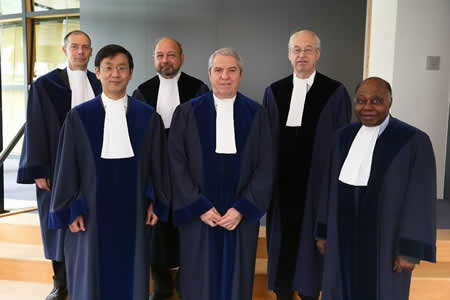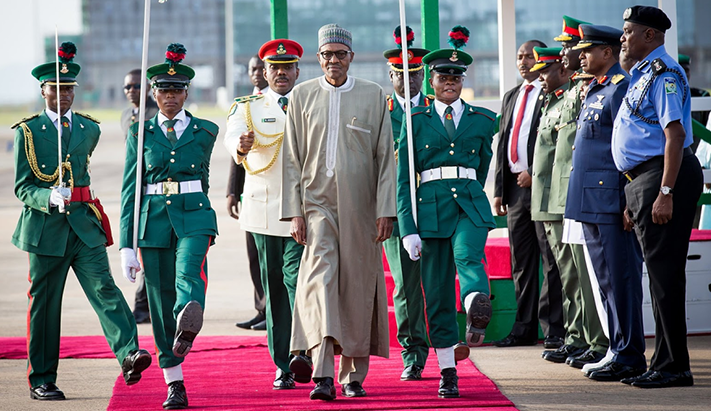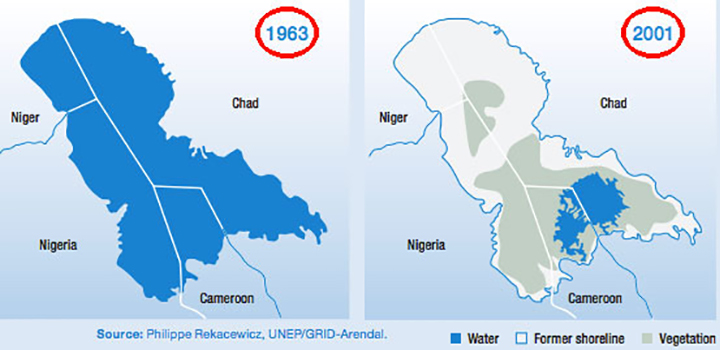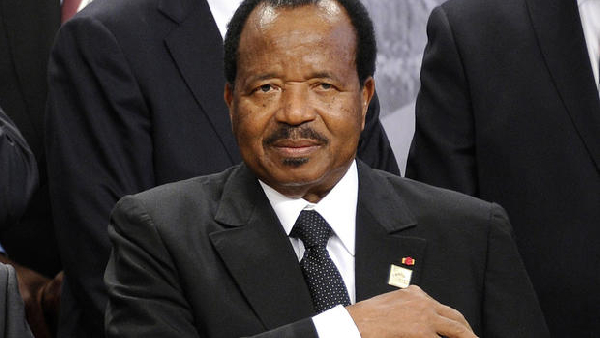WORLD SIGHT DAY: THE STATE OF EYE CARE DELIVERY AND VISUAL MORBIDITY IN GHANA
World Sight Day (WSD) is a global event that focuses attention on blindness and vision impairment. Observed on the second Thursday of October each year, the primary goals of WSD are to raise public awareness of blindness and vision impairment as major public health challenges, to influence governments to participate in and commit funds to programs which target blindness prevention or sight restoration programs, and to educate the public on blindness prevention, and to generate support for VISION 2020-related programs. On this day, all major professional groups involved in eye care delivery; the Ghana Optometric Association, The Ophthalmological Society of Ghana, and the Ophthalmic Nurses Group organize programs to commemorate the occasion.
As WSD is observed, it is rational that the state of eye care and visual disability/impairment is made known to stake holders involved in eye care delivery and the public at large. This article thus seeks to discuss briefly, eye care delivery in Ghana with emphasis on human resource, epidemiology of visual impairment/blindness and some impacts of visual impairment.
Eye care delivery in Ghana
Eye care services in Ghana are rendered by government hospitals and clinics, facilities within the Christian Health Association of Ghana (CHAG), and private facilities (Drislane, Akpalu, & Wegdam, 2014). Approximately one-third of Ghana’s health facilities are operated under private ownership. In fact, a McKinsey study in 2008 found that over 50% of health service provision in Ghana is delivered by the private sector.
The eye care team in Ghana primarily comprises ophthalmologists, optometrists, and ophthalmic nurses. Currently, there are 91 ophthalmologists, 370 optometrists, and about 500 ophthalmic nurses in the country. These numbers are woefully inadequate for a country with a population of about 27 million people. Compounding the issue of inadequate eye care professionals is the inequity in the distribution of available care professionals. According to 2013 Ghana Health Service statistics, about 75% of eye care professionals are concentrated in the urban areas leaving rural dwellers with limited access to eye care.
The country’s eye care system is financed by four main sources: Government of Ghana, internally generated funds, development assistance for health, and out-of-pocket expenditures made by households. Overall, the health care delivery system in Ghana is seemingly underdeveloped with significant proportion of the population having limited access to basic health care services.
Epidemiology of blindness and visual impairment in Ghana
Ghana has a seemingly higher prevalence of visual disability. According to World Health Organization estimates, the prevalence of visual impairment in Ghana is 27 per 1,000 population (approximately 720,000 people) and prevalence of blindness of 9 per 1,000 population. Approximately 1% of the Ghanaian population suffers severe visual impairment (Ghana National Blindness and Visual Impairment Study, GNBVIS, 2017).
Overall, cataract is the leading cause of blindness in Ghana, accounting for 45 - 50% of the burden of blindness in 2013. The prevalence has marginally increased as a more recent survey conducted between February 2015 and November 2016 by the GNBVIS Group found a cataract prevalence rate of 54.8%, translating to approximately 112,000 cases of blindness resulting from cataract. According to a 2008 report of the National Eye Care Unit (NECU), approximately 48,000 new cases of cataract blindness are recorded each year in the country.
Glaucoma is the leading cause of irreversible blindness in Ghana. The country ranks high among the most affected countries in the world for glaucoma. A study by Ntim-Amponsah and colleagues found the prevalence of glaucoma among adult Ghanaian population is 8.4%, second only to St. Lucia’s 8.8%. The seemingly higher prevalence of glaucoma visual impairment could partly be attributed to late presentation of patients to eye care facilities. For instance, a survey at Bawku Presbyterian Hospital found that among patients seen for the first time and diagnosed of glaucoma, 34% were irreversibly blind (GHS, 2013).
Refractive errors (short-sightedness, long-sightedness, and astigmatism) remain the leading cause of visual impairment blindness in Ghana. In the recent study by the GNBVIS Group to profile blindness and visual impairment in Ghana, refractive error was found to be the leading cause of visual impairment in Ghana, accounting for 44.4% percent of visual impairment cases.
According to data at NECU, the topmost 5 eye conditions seen in Ghana, based on number of patients seen in outpatient departments: are acute red eye, refractive error, cataract, glaucoma, and uveitis. In fact, acute eye conditions rank among the top 10 causes of outpatient morbidity in the country.
Prevalence of visual disability is higher in rural regions than urban regions. The lower accessibility of eye care professionals and facilities (GHS, 2013) could account for the uneven distribution of the prevalence of visual disability in Ghana. The fact that poverty has a significant association with visual disability, and most of the 24.2% of the population who live under the poverty line inhabit deprived, rural areas (Central Intelligence Agency, 2016) also explains this pattern of distribution of visual impairment.
Several factors account for this seemingly high prevalence of visual impairment in Ghana. The overall limited number of eye care professionals in Ghana is a major contributing factor to visual disability in Ghana. Most eye diseases and conditions such as refractive errors, trachoma, cataract, and to an extent, glaucoma results in disability only when the affected is unable to access eye care services. With the limited eye care workforce in a country with a positive annual population growth, the prevalence of visual impairment is not expected to reduce significantly anytime soon. Self-medication and reliance of unorthodox eye care practices by some people also contributes to the higher prevalence of visual impairment resulting from infection. There are several anecdotal reports people resorting to the use of breast milk, sea water, urine, and herbs as forms of medication to treat certain eye infections. These practices perhaps delay case resolution, worsen the conditions and subsequently results in impairment.
Impacts of Visual impairment
Visual impairment has negative impacts on the affected individuals and the nation at large. Visual impairment causes a considerable economic burden (direct and indirect) for affected persons, their caregivers and society at large. Direct economic loss to the affected persons and their care givers derives from the considerable costs incurred in the provision of surgical and non-surgical interventions. Indirect economic loss results from considerable absenteeism at work due an affected person’s inability to work or a caregiver’s unavailability to work, resulting in diminished economic productivity (Köberlein, et al., 2013). More often than not, persons with blindness are unable to partake in economic discourse with the end result being extreme poverty. In fact, a positive association has been found between productivity loss among caregivers and the magnitude of visual impairment since time spent by caregivers increases with the extent of vision loss.
In addition to the aforementioned, also affected by visual impairment are one’s mental health and cognitive abilities. In fact, persons with visual impairment have higher risk for depression, anxiety, and other psychological problems (Kempen et al., 2012). Visual impairment also impacts negatively academic attainment. It is worthy of note that children with visual impairment are more likely to have poor academic performance (Kulp et al., 2016). Uncorrected refractive errors are largely implicated in visual impairments’ association with poor academic performance. Children with uncorrected refractive errors may experience blurred vision, headache during reading, sore eyes, itchy eyes and tearing. School children with these symptoms have a propensity to be less engaged in academic-related activities, hence the diminished academic attainment.
Last but not least, visual impairment significantly affects the activities of daily living (reading, socializing, pursuing hobbies, etc.) of persons with visual impairment. It results in loss of social independence and reduction in mobility which leads to reduction in one’s quality of life (QOL). It must be stressed that QOL diminishes with the onset of visual impairment (Rein et al., 2007).
Conclusion
Visual impairment is a bane of Ghana’s socioeconomic development. The government of Ghana and all stakeholders in the eye care delivery system should be more proactive in efforts to make eye care more accessible to underserved areas and to reduce the spate of visual disability. Equally important is the need for all the eye care professional sub-groups to forge greater collaborations to maximize their output in the quest to reduce the overall prevalence rates of blindness and visual impairment in Ghana.
Contributing Authors:
Dr. Kwaku A. Osei, O.D.
Dr. Justice A. Akpabla, O.D.
Dr. Yvonne Adu-Agyeiwaah, O.D.


















